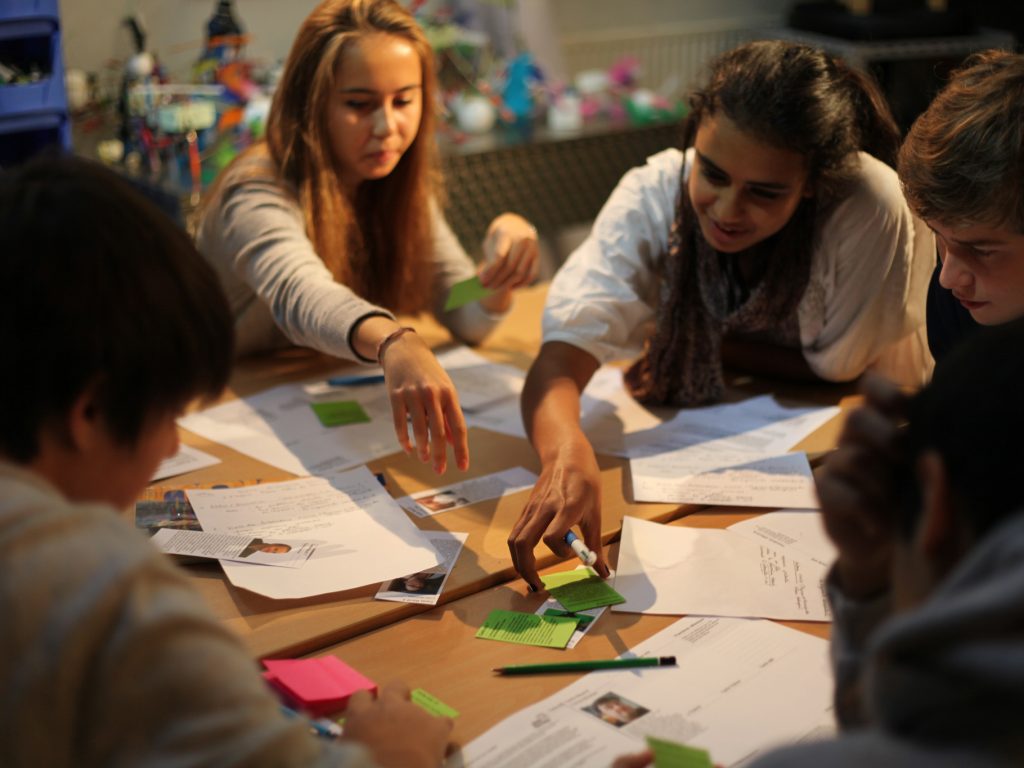Schools As Living Labs promotes the living lab approach to make STEM teaching more appealing and supports schools in their shift toward open schooling and innovative education. But all schools are different and their cultural backgrounds vary. For SALL, providing and assessing adaptable tools and methodology to start the implementation of living labs in schools’ communities is a key milestone.
One of the characteristics of Living Labs is that multiple societal actors work together on a common real issue. Societal actors’ engagement is one of the first steps living labs should address and is an essential aspect in the success of such an initiative. Therefore, it will be addressed extensively in the methodology SALL is designing for schools. The design of the methodology has been initiated by TRACES, together with experts Malvina Artheau and Didier Laval in a co-creation process.
NEMO science museum continues on this by providing a Stakeholder Engagement Methodology. And even if it is a work in progress, the methodology offers first suggestions for schools on how to identify, approach, motivate and create a sustainable connection with societal actors in their local environment. The methodology is built as a roadmap suggesting step-by-step actions and offers tips, examples, and questions to think about. A modular approach useful to connect with societal actors in different cultural backgrounds as there are multiple ways to create a vivid school community.
Open schooling and living lab methodologies can profoundly transform traditional approaches of culture and education. Schools involved in our pilot phase start a new journey in innovative education. Therefore they need special support to develop their living lab projects. The University of Deusto, along with TRACES and national coordinators, started to launch a series of actions, materials, and tools to handle needs and challenges identified by the pilot schools: a roadmap to build their living lab projects, activities to stimulate cooperation, good examples to get inspired, moments to share experience with peers, etc.
We also aim to assess the impact of the SALL methodology on individuals and societal actors involved with a variety of evaluation tools and procedures. The ReSciTeg group from the University of Cyprus developed a conceptual and methodological framework to evaluate SALL’s actions. The main tool used is the SWOT analysis which will provide us an insight into the Strengths-Weaknesses-Opportunities-Threats of our project. A mandatory step to make targeted improvements based on the feedbacks of the 42 schools involved in our pilot phase before introducing the SALL methodology to a wider community.
This framework, based on the desk research and workshops organised by TRACES, is not complete or refined. Producing a methodology to support schools in carrying out open schooling science education is an iterative process that needs fine tuning as the SALL project progresses over the next few years. However, this background work leads the path towards SALL methodology and has provided some directions before embarking our pilot schools on their living-lab journeys!

